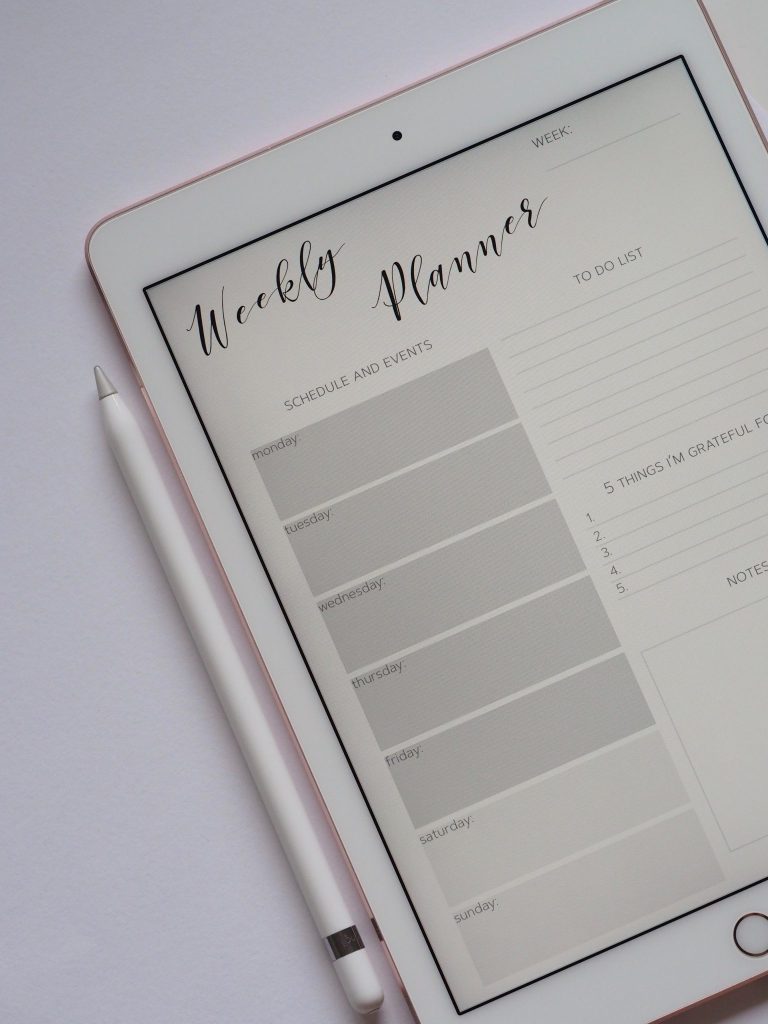How To Keep Your New Year's Resolutions
A lot of people set new year’s resolutions and will truly make every effort to stick with them. But there is a reason that attendance at the gym tends to fade once February rolls around. People may make goals with good intentions, but it is tough to stick to them in the long run.
Why does this happen? How come people don’t stick to the goals that will make their lives better long-term?
Here are a few reasons that I have noticed…
The goal is too ambitious.
Whether it is losing a large amount of weight, running a marathon, or eating healthy every meal of the day- you need to choose something that is actually realistic.
There are no steps.
Okay, so you want to eat healthy. If you just say, “I want to eat healthier in the new year,” and you have no actionable steps you are going to put in place… Say goodbye to that goal, because not much is going to change.
The goal is too vague.
Similar to the above, if your goal is too vague then it will be easy to get discouraged. It will be hard for you to measure progress and tell whether you are sticking to your goal.
What does it mean to eat healthier? This will mean something different to every person, so being more specific will help you measure progress, which is key to staying motivated with a goal.
How To Set Your New Year's Resolutions:
So now that you know a few reasons why people don’t stick to their goals, what makes a new year’s resolution work?
Make Your Goal S.M.A.R.T.
Maybe you learned this in school, at work, or the internet. The reason this way of setting goals is so universal is that it actually works.
It may seem time consuming, but everything worthwhile requires a little bit of effort.
Let’s break down each section to help you work on building your goal.
Free Masterclass
Specific
I mentioned above that goals that are too vague will not be achieved. As a result it is important to make your goal specific.
Too Vague: I want to eat healthier in the new year
Specific: I want to eat fruit and vegetables 5 days each week in the new year.
Measurable
It is important to be able to keep track of your progress when setting and working towards a goal. It is very easy to lose motivation if you don’t visibly see progress and you don’t feel that you are improving. A lot of progress may not be apparent if you are not paying attention. If you are making efforts to measure your progress, then you have a way of staying motivated to reach your goals.
Not Measurable: I want to go to the gym regularly in the new year.
Measurable: I want to go to the gym for 30 minutes at least 3 days a week in the new year.
Achievable
Well, if a goal is not achievable, then is it really worth setting? Be realistic in regards to what you can achieve. A goal should be achievable, while also challenging. Depending on your goal, keep in minds things like time-constraints, physical ability, finances, etc.
Not Achievable: For a person who has never meditated before, it is probably not realistic to set a goal to meditate for an hour each and every day from day one.
Achievable: It is more realistic to set a meditation goal of meditating for 5 minutes a day for 5 days a week if you are just starting out.
Relevant
This means whether or not the goal is relevant to you at this time in your life, and based on what you want to achieve overall. Questions to ask yourself can be: is this the right time? Is this something that I want for myself? Am I motivated to work on and accomplish this goal?
Relevance may seem obvious, but it is important that you enjoy both the process and the outcome of a goal. You are just not going to stick to a goal if you are miserable while you are working towards it.
Time-Based
Set a deadline to work towards. It can be just one deadline, or multiple increasing ones over time. You will never stick to a goal if your deadline is “forever,” and this gives you something to work towards.
Different research studies claim that it can take anywhere from 21 to 66 days to form a habit, so definitely aim to have a time-frame of at least a month if you want this to turn into something long-term.
Set short-term goals within those long-term goals in order to stay motivated. For example, if you wish to read more in the new year, maybe 30 minutes a day, it can be hard to stay motivated if you don’t have any benchmarks.
Try setting yourself another goal that you will read at least one book every two weeks (or a week, or a month, depending on how fast you read).
[Check out my post on the 5 best mindfulness books for ideas of what to read if this is your goal!]
Sticking With Goals When It Gets Tough:
After you have planned and set your new year’s resolutions and you are on your way to success, how can you ensure that you mentally stick to them?
Some of the difficulty people have in sticking to goals and changing habits come from the beliefs you hold about yourself.
These are called limiting beliefs, and they are inaccurate thoughts that cause you to doubt yourself and your abilities.
Everybody has them, and they can be formed in childhood, adolescence, and even adulthood. These types of beliefs result from negative experiences, things that your parents or adults told you, or things that you have told yourself based on past failures or discouragements.
Before you step foot into this new year and this goal you have for yourself it is important for you to identify and address these beliefs!
This will require some writing, and it is totally worth it.

Identifying Limiting Beliefs:
Divide a piece of paper into two columns and write “Goal/Resolution” above one column, and “Negative Thought” above the other.
This is an exercise that is best done before you start working on your goal, and also regularly when you feel doubtful or discouraged.
In the best case scenario, it is best done daily to continue identifying and dispelling your limiting beliefs.
In the column with your goal, choose one statement that briefly defines what your new year’s resolution and/or outcome is based on the S.M.A.R.T. guidelines above.
For example: “I will meditate for 5 minutes a day 5 days a week for the month of January.”
In the column with your negative thought, listen to what comes up in your head when you write down this goal and write down the negative thought. You will have a negative thought.
For example: “I won’t have the dedication to stick to meditating for 5 days a week.”
Keep working this way down the entire page. By identifying and writing down your limiting beliefs, and continuing to stick to your goal statement, you are battling the thoughts that will arise when working towards your goal.
Persistence Is Key:
If you are able to implement this exercise, I commend you. It can be tough to identify your own self-doubt and stick to the new year’s resolutions you have set.
It is so rewarding though!
Whenever you are feeling discouraged, think about your why – the reason why you set this goal and how it will make you feel when you have accomplished it.
Remember that persistence and commitment are key. It is okay to miss a day or a few because you can always come back and it isn’t the end of the world. Be kind to yourself.
Good luck with the goals you set for yourself in the new year and beyond!
I hope these tips were helpful in getting you to set and stick to your goals. Please let me know in the comments below what goals you have set or are planning on setting for yourself in the new year!
Pin For Later:

Sources:














